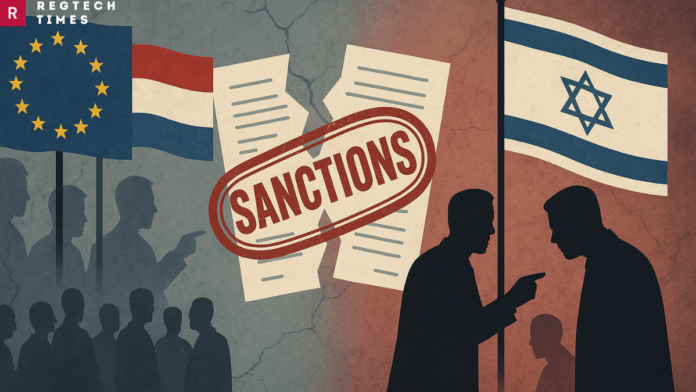Sweden and the Netherlands are asking the European Union (EU) to punish certain Israeli government ministers. These two countries want the EU to place sanctions—special penalties—on Israeli officials because of the war in Gaza. They are not alone. Other countries in Europe like Spain, Finland, Ireland, and Luxembourg are also asking for strong action.
These countries believe that some of the Israeli ministers have said or done things that make the violence worse, especially in Gaza and the West Bank. Many are pointing at ministers who they believe have encouraged actions against Palestinian people.
These requests were shared in a private meeting of European diplomats. Some officials who were part of these talks spoke about it but asked to remain anonymous because the discussions are sensitive.
There’s growing frustration in Europe about what’s happening in Gaza. Many people and governments believe that the situation has gone too far. Recently, Israeli airstrikes hit Iran, which made things even more tense in the Middle East. These strikes targeted nuclear sites and military leaders in Iran.
Now, the EU is expected to talk more about this issue in a meeting of foreign ministers on June 23. This is before an important summit of EU leaders later in June in Brussels.
Growing Pressure from Allies
The push for sanctions by Sweden and the Netherlands follows actions by other countries outside the EU. The United Kingdom, Canada, Australia, New Zealand, and Norway have already placed sanctions on two Israeli ministers. These countries say the ministers helped stir up violence toward Palestinian communities.
These sanctions were not on Israel as a country but on the individuals personally. That means their bank accounts or travel options could be restricted, but it doesn’t affect Israel’s economy directly.
In the Netherlands, the Foreign Minister said in Parliament that EU sanctions might be possible. But he added that more discussion is needed and that he does not want to suggest something unless all 27 EU countries agree.
That’s because every EU country must agree before sanctions can happen. If even one says no, the plan stops. On Friday, the Dutch foreign ministry didn’t comment any further, and Sweden also hasn’t made a public statement about the talks.
Divisions Inside the European Union
Even though more countries are taking a tougher tone with Israel, not everyone in the EU agrees on what to do. Some countries, like France, Hungary, and Italy, have different ideas.
France is worried that harsh punishments like sanctions might not help. France and Saudi Arabia are both working behind the scenes to get more support for a Palestinian state, so France thinks sanctions could get in the way of that effort.
Hungary is a strong supporter of Israel and doesn’t want the EU to take tough actions. Instead of sanctions, France and other countries are looking at a different tool: the EU-Israel Association Agreement. This is a deal signed in the year 2000 to help the two sides work together on trade and politics. The agreement also says both sides must respect human rights.
EU’s Hardest Punch Yet: Chinese Banks Face Sanctions Over Secret War Transactions
If the EU decides to change this agreement, it could affect trade. Europe is Israel’s biggest trading partner, and last year they traded around $47 billion worth of goods. That’s a lot of money, and losing even part of that could hurt Israel’s economy, which is already under pressure from the ongoing war.
Even countries that have long been friends of Israel are now speaking out about the situation in Gaza. They say the level of destruction is too high and the suffering of the people there is too great.
Germany, for example, is thinking about placing trade restrictions and stopping arms sales to Israel. Other countries are also considering similar steps.
Despite the different opinions, it’s clear that more countries in Europe are starting to speak with a louder voice about the crisis. For now, everyone is waiting to see what happens at the big EU meetings later this month.


